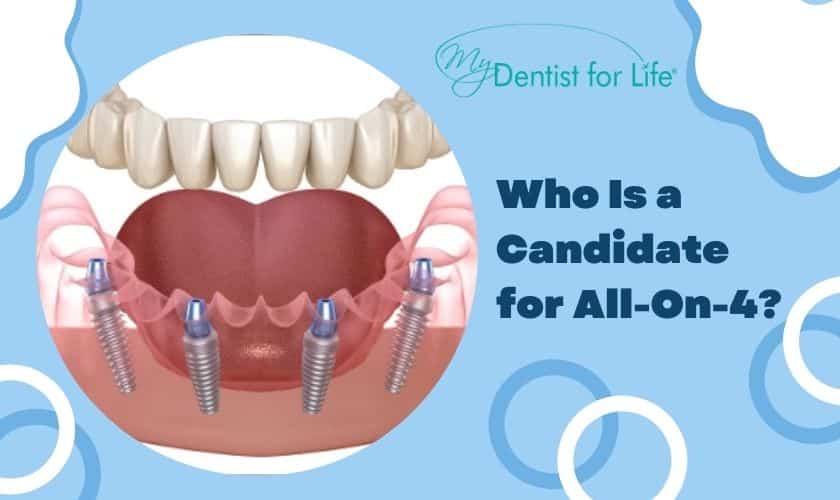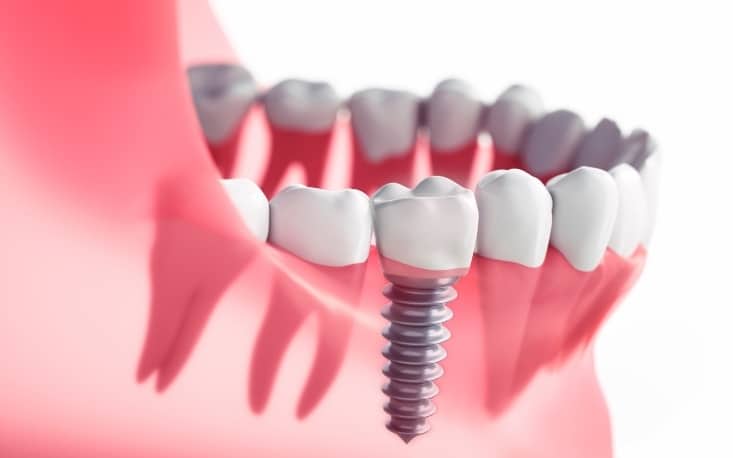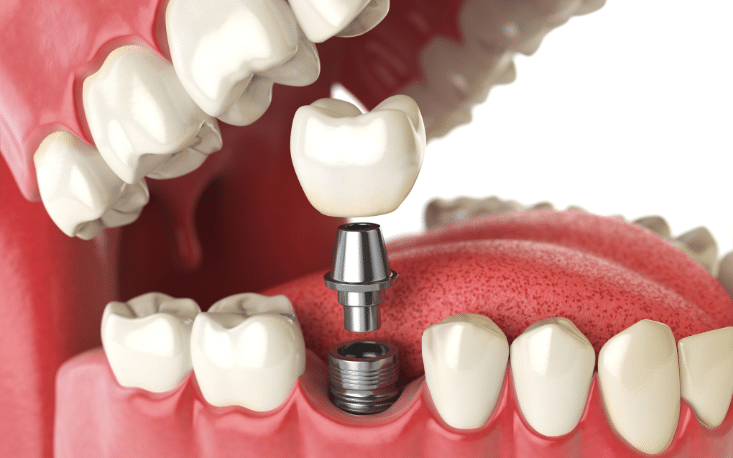ONLINE SCHEDULING AND VIRTUAL CONSULTS AVAILABLE

Who is an eligible candidate for all-on-4 implants?

All-on-4 implants are a tooth restoration option for people who have lost some or most of their teeth. This tooth restoration method supports dentures by four implants placed within the jawbone. The procedure offers enhanced convenience and comfort for the patient. However, a proper oral examination is necessary for deciding whether the patient is eligible for the procedure or not. The evaluation process may involve taking X-rays, CT scan, and teeth impressions. Procedures such as tooth extraction or bone grafting may be required depending on the teeth condition of the patient. Read to know more about the eligibility criteria for all-on-4 implants.
Candidacy for all-on-4 implants
There are especially two types of patients for all-on-4 implant procedures. They are those who have lost all the teeth in the upper or lower jaw and those who only have a few teeth left. It is ideal for those looking for a cost-effective alternative for their lost natural teeth. All-on-4 implant procedure gives them a new set of teeth the same day after the implant placement. One of the key advantages of all-on-4 implants is that they may be suitable for those who are ineligible for traditional dental implant procedures due to a lack of adequate bone density.
Below are some of the factors that are considered before deciding the patient’s eligibility.
1. Good oral health
The patient should not have any severe oral diseases when performing the all-on-4 implant procedure. Oral health issues like gum disease should be treated and cured before implanting. Even those who are vulnerable to gum disease can undergo the implant procedure. However, the possibility of implant failure is always high for such individuals.
2. Good physical health
Good overall health is a must for undergoing the all-on-4 implant procedure. People with uncontrolled diabetes or taking antidepressants may not be eligible for the all-on-4 implant procedure.
3. Sufficient bone structure
A CT scan will be performed to analyze the patient’s bone mass. Even though the adequate bone is required for all-on-4 implants compared to regular implants, the remaining bones should still be strong enough to support the new implants. If necessary, the dentist may recommend bone graft surgery.
4. No Smoking
If you are a frequent smoker, it can adversely impact the success of all-on-4 implant procedures. Smoking can impact the bone’s healing ability. Patients who are considering all-on-4 implant procedures should quit smoking days before the beginning of the implant procedure and also days afterward the completion of the implant procedure.
Advantages of all-on-4 implants
Here are some of the various benefits of All-on-4 implants.
- With all-on-4 implants, you need not worry about inflammation, irritation, or sensitivity to the gums. It eliminates the need for anesthetic gels.
- You can also care for the prosthetic dental implant teeth as with your natural teeth. Since it is permanently affixed, you can perform oral routines such as brushing and flossing. There is no need to remove it at night before sleep or after meals for cleaning purposes as you do with dentures.
- All-on-4 implants offer enhanced support and strength by improving your speech, chewing, etc.
- It is hard to distinguish dental implants from your natural teeth. It looks, feels, and functions just like a natural tooth.
The patient must meet the earlier criteria for all-on-4 implant treatment. The teeth gap due to lost teeth, if left untreated, can lead to movement of the adjacent teeth towards the missing teeth area. It can also cause other problems such as facial sagging, speech problems, bite problems, etc. The all-on-4 implant is cost-effective and one of the best alternatives for people with missing teeth. If you are looking for a suitable alternative for your missing teeth, then all-on-4 implants should be at top of your priority.





